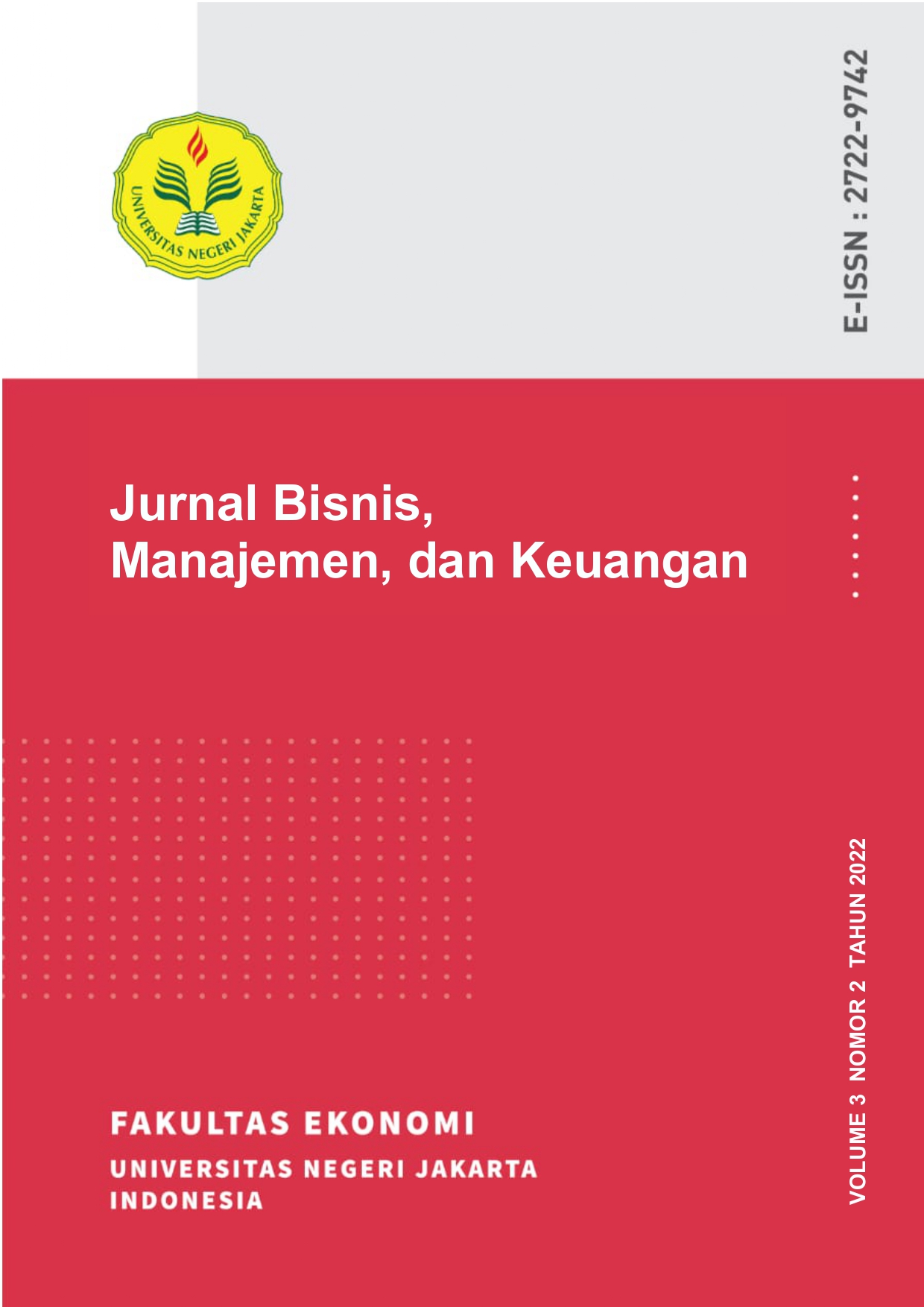Pengaruh Financial Attitude, Financial Knowledge, dan Income terhadap Financial Management Behavior dengan Locus of Control sebagai Variabel Intervening
DOI:
https://doi.org/10.21009/jbmk.0302.04Keywords:
Financial Attitude, Financial Knowledge, Income, Locus of Control, Financial Management Behavior, Theory of Planned BehaviorAbstract
This study aims to determine the effect of financial attitude, financial knowledge, and income on financial management behavior with locus of control as an intervening variable for students of Faculty of Economics, State University of Jakarta. Data was collected using purposive sampling method with data analysis used is Partial Least Square - Structural Equation (PLS-SEM). The analytical technique used for the outer model is the validity test and the reliability test. In addition, the inner model is tested using the coefficient of determination, predictive relevance, multi-collinearity test, and hypothesis testing and mediating effects. The results showed that financial attitude and financial knowledge had a significant effect on locus of control and financial management behavior, while income did not show the same results. In addition, locus of control is able to mediate the influence of financial attitude and financial knowledge on financial management behavior but is unable to mediate the effect of income on financial management behavior.
Penelitian ini bertujuan untuk mengetahui pengaruh financial attitude, financial knowledge, dan income terhadap financial management behavior dengan locus of control sebagai variabel intervening pada mahasiswa Strata 1 dan Diploma 3 Fakultas Ekonomi Universitas Negeri Jakarta. Pengambilan data menggunakan metode purposive sampling dengan analisis data yang digunakan adalah Partial Least Square – Structural Equation (PLS-SEM). Teknik analisis yang digunakan untuk outer model adalah uji validitas dan uji reliabilitas. Selain itu, inner model diuji dengan menggunakan koefisien determinasi, predictive relevance, uji multikolinieritas, dan uji hipotesis serta efek mediasi. Hasil penelitian menunjukkan bahwa financial attitude dan financial knowledge berpengaruh signifikan terhadap locus of control dan financial management behavior, sedangkan income tidak menunjukkan hasil yang sama. Selain itu, locus of control mampu memediasi pengaruh financial attitude dan financial knowledge terhadap financial management behavior, namun tidak mampu memediasi pengaruh income terhadap financial management behavior.





